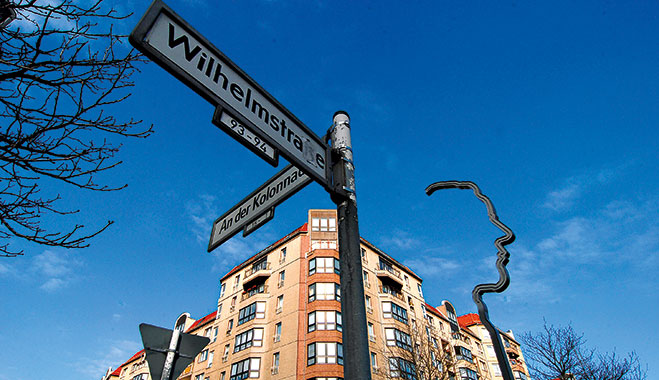
The fall of the Berlin Wall on November 9 1989 coincided with the collapse of East-German industry. The event left most of the city’s commercial buildings vacant and helped to drive down residential rent prices in the area along with it. Some 26 years later and this combination has helped transform the German capital into not only one of the trendiest cities in Europe, but one of the most tech-savvy, with many of the world’s brightest, young minds opting to create the next big thing in Berlin.
Like London and New York, Berlin is ridding itself of dilapidated urban sprawls, reinvigorating areas and helping to drive up demand, which increases the overall value of property in these cities. In fact, according to a report published by Jones Lang LaSalle earlier this year, demand for housing in the capital has grown so much that it has exceeded supply.
Berlin is ridding itself of dilapidated urban sprawls, reinvigorating areas and helping to drive up demand
“Since 2010, the stock of residential space in Berlin has risen by 0.8 percent or 15,500 residential units”, writes the report’s author and principal consultant at Jones Lang LaSalle, Juilus Stinauer. “Compared to the rise in population of almost 150,000 people over the same period…” This has helped push rental prices through the roof in Berlin, with new leases reaching as high as €8.95/sqm on average during the first half of 2014, which according to the Stinauer, represents a rise of more than 9.1 percent compared to the same period a year ago – prompting politicians to take action.
Enough is enough
In an effort to stem the rapid rise in rental prices, the Bundestag passed the rental price brake law or mietpreisbremse, as it is known in Germany and, which took effect in Berlin on June 1. The new law prohibits landlords from charging new tenants more than 10 percent over the local average.
Immobilienscout24 examined that the rents in Berlin first decreased by three percent in June, which is great news in a city where, over the last year and a half, rents have risen by an average of 0.3 percent per month. However, there are those that believe it is too soon to start attributing any decrease in rental price solely down to the new rent laws.
“We assume that it is too early to draw firm conclusions about the rent laws that have only been in force for a short time”, said Wibke Werner, Associate of Management for the Berlin Tenants’ Association. “The average rent amounted to €8.53/sqm during [Immobilenscout24’s] investigation. That’s more than 10 [percent] above the average local comparative rent in Berlin (€5.93/sqm). Only the coming months will show the effect of the rent laws.”
While the mietpreisbremse seems a positive step for renters in the city, there is still a lot more that needs to be done in order to stop rental prices spiralling out of control. Members of Berlin’s Tenants’ Association stress the importance of not just building new homes, but affordable ones too. Also, what it’s likely to do to the lending side of the market is yet to be known.
“Affordable housing must occur in order to supply the majority of the population with housing”, said Werner. “In addition to that, existing affordable housing must be protected. In social housing, the rent levels must be limited and will only be rented to tenants with low incomes.”
A pro-rent economy
Germany has a long history of being very pro-tenant. It is a country where the vast majority of people rent, rather than own the property they live in – making politicians more likely to listen to them. The strength of the rent culture in cities like Berlin has led to the adoption of some powerful legislation. Existing laws allow tenants to stay in the same residence, under the same contract, for many years, meaning that rent rises are often small and are only substantial if tenants decide to move.
“In the past, the rents were in new lease agreements 30 to 40 percent above the local comparative rent”, explained Werner, but even this trend seems likely to end as a result of the mietpreisbremse law.


